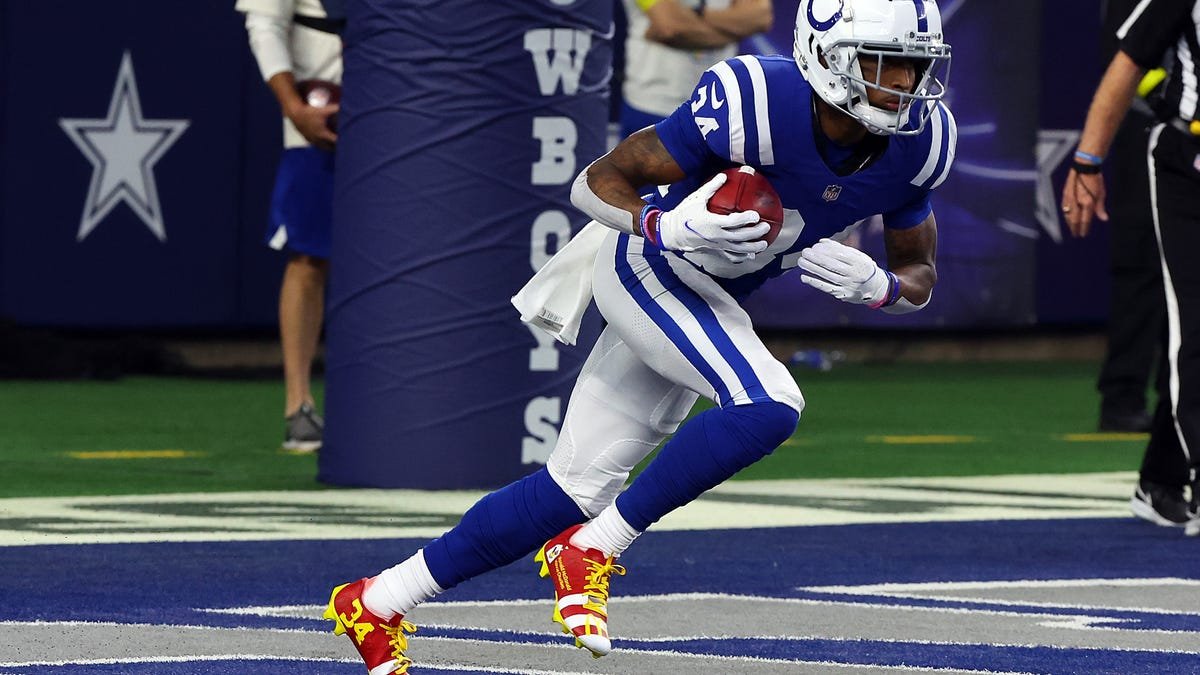Isaiah Rodgers Claims Bets Placed on Indianapolis Colts Were for Others, Not Himself
In a recent interview with ESPN, suspended cornerback Isaiah Rodgers made a surprising claim regarding the bets placed on the Indianapolis Colts. Rodgers stated that the bets were placed using his account but were made for other individuals, not himself. According to Rodgers, these bets were made for people who lived in states where sports gambling was illegal, while it was legal in Indiana.
Rodgers admitted that he was aware of the rules and regulations surrounding sports gambling and acknowledged that he should not have engaged in such activities. However, he explained that he was simply trying to help friends and family members who were unable to place bets themselves due to their location.
While Rodgers declined to name the individuals for whom the bets were placed, he expressed his understanding that there would be consequences for his actions. “At the end of the day, I knew the rules, I wasn’t supposed to do it, and I have to take what comes with it,” Rodgers said.
The NFL and the Indianapolis Colts had no choice but to take action in response to Rodgers’ actions. The league announced the suspension of several players for gambling violations, including Rodgers and Rashod Berry, both from the Colts. The team subsequently announced that both players have been waived.
What Rodgers is accused of is considered not only foolish but also potentially indicative of a larger problem. Initially, when the story broke, Rodgers was accused of using an account under an associate’s name to place numerous sports bets, including those involving Colts’ games. Placing a single bet on an NFL team using someone else’s account suggests conspiracy.
Further investigation revealed that one of the wagers placed by Rodgers was a $1,000 over/under bet on the rushing yards of a Colts running back. These actions have serious implications and could potentially tarnish the integrity of the game.
The NFL has faced criticism for its morally questionable practices, such as the physical toll the sport takes on its players and the head trauma associated with it. Additionally, players only receive healthcare for a limited period after their careers end, and league ownership consistently prioritizes profit over player well-being.
While partnering with sportsbooks may be ethically questionable, the NFL’s focus should be on addressing more pressing issues, such as player safety and fair compensation. The league has 21 weeks of physically demanding games every season, and the players’ well-being should be a top priority.
The only true integrity the NFL possesses lies in the competition on the field, and any breach of that integrity can have severe financial repercussions for the league. Rodgers, who was a significant part of the Colts’ defense, may never play another down in the NFL as a result of his actions.
While the NFL’s decision to partner with sportsbooks may benefit the players financially, it’s crucial that they adhere to the rules and regulations surrounding sports gambling. Players must refrain from betting on their own sport and avoid placing wagers in any facility or room associated with an NFL franchise. This may seem restrictive, but it is a simple rule to follow to maintain the integrity of the game.
For those players who cannot adhere to these rules, the consequences are severe, as seen with Rodgers, Berry, and others. The NFL is unlikely to halt its partnership with sports betting due to concerns of hypocrisy. Therefore, it is essential for players to understand and respect the boundaries set by the league.





